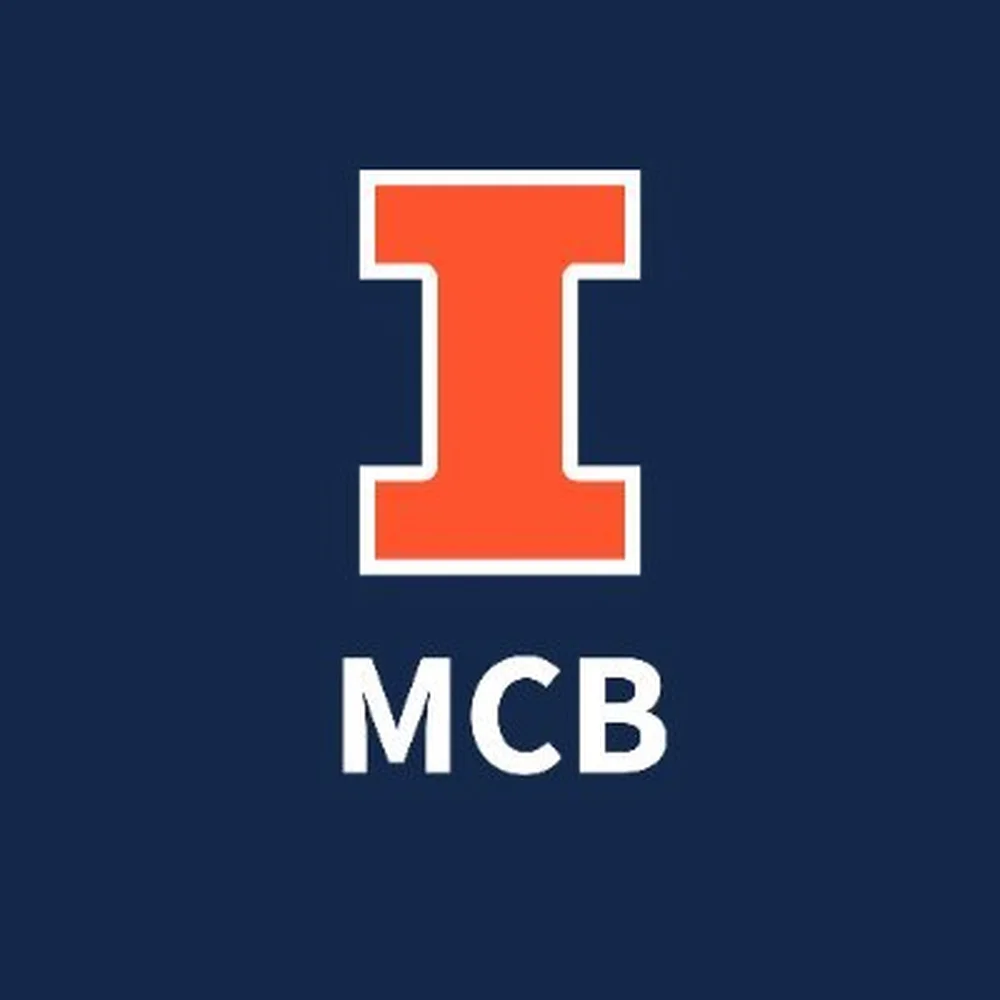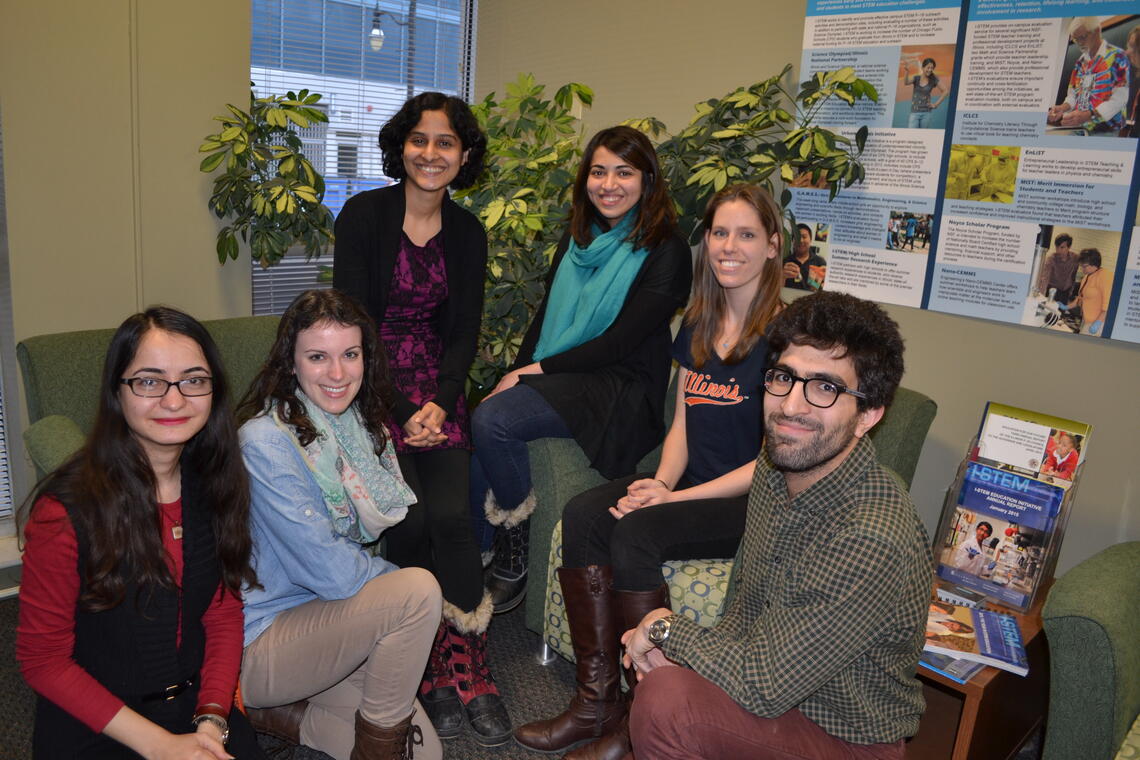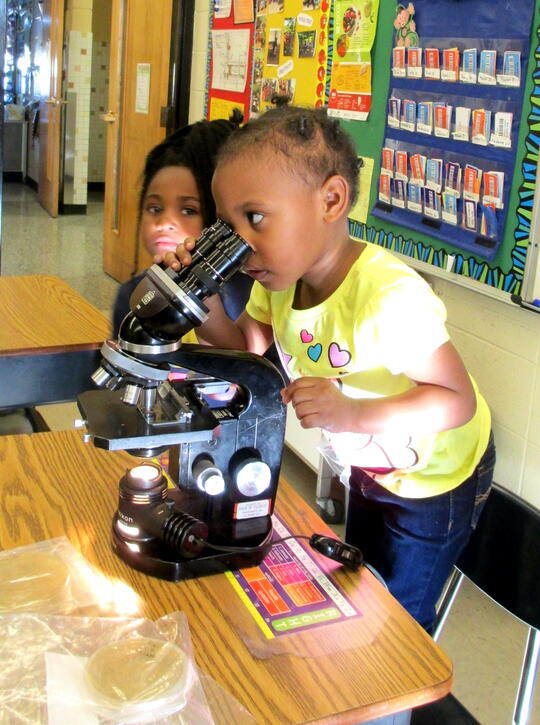
After the six months of lab rotations, new MCB graduate students choose a lab in one of the four departments Biochemistry, Cell and Developmental Biology, Microbiology, and Molecular and Integrative Physiology and rarely see other MCB students in their cohorts, “because you kind of get busy with your work," admits Biochemistry grad student Amruta Bhate, "and you only meet people from your department."
So a group of MCB grad students decided to do something proactive about it. They got together and started a GSA (Graduate Student Association). They call themselves the MCBees. Their goals? To become a source of support for graduate students, especially incoming first-year students; to help MCB with recruitment; to foster relationship-building among grad students via social activities; and to do outreach.
Microbiology grad student Maryam Khademian came up with the idea, “we have 250 students here who are all potential friends,” she thought to herself. “Grad school can be just as fun, and as cool, and as amazing as my undergrad experiences if we help students to know each other and to make friends.”
At the first meeting of the MCBees in November, 2015, they picked the leadership, working to ensure that all the departments were represented. In January of 2016, once they became an officially registered GSA, they started recruiting MCB grad students via email. So far, around 150 of MCB’s 250 students have become members. Following are the MCBees' leadership team members, their roles/responsibilities, and their departments:
-
Maryam Khademian, President, Microbiology
-
Pritha Rao, Secretary, Microbiology
-
Omid Gholamalamdari, Treasurer, Cell and Developmental Biology
-
Michelle Goettge, Communications, Microbiology
-
Amruta Bhate, Academic, Biochemistry
-
Nayab Abidi, First-Year Liaison, Cell and Developmental Biology
-
Kirsten Eckstrum, Social, Molecular and Integrative Physiology
-
Mara Livezey, Outreach, Biochemistry

The MCBees also hope to do more than just network. They have big plans for the future: academic events, journal clubs, science-based competitions, social hours, outreach. Bhate adds that they also hope to: “have an early source where the incoming grad students can just contact senior students just to know how this school works.”
For prospective students who couldn’t make the first visit in February, MCB scheduled an alternate weekend in mid-March. For that event, the MCBees sponsored the MCB Rapid Fire competition in the form of elevator speeches. Labs or grad students had three minutes to present their research to the audience.
“It’s like an elevator pitch, but in a fun way,” explains Bhate. “To be catchy, it has to be general so that people from every discipline can understand it, and it has to be short, and sweet, and funny.” While still a competition, the plan was that “the candidates/recruits will get an idea of the breadth of research going on.”
Omid Gholamalamdari, the MCBees’ Treasurer, explains that they borrowed the idea from the Graduate College’s Research Live! competition held for the public, during which Illinois grad students were given three minutes to talk about their research. “So this can be a kind of outreach someday if we just plan it for a public audience,” he explains.
Khademian adds that doing “Elevator Speeches” for the February recruiting weekend was kind of a test run; the plan was to “do it on a smaller scale just to work out the nitty gritty details of the event, and then we’ll eventually go big.”
Gholamalamdari even wants to do an outreach to tackle the apprehension the general public often feels about research.
The MCBees also did another fun, research-related event for MCB recruiting week: a research photo contest. They had students send them photos related to their research with a description, which they printed then showcased during the recruitment weeks, “so recruits would actually see what’s going on,” explains Khademian. “They see what research actually is like.”
“These are actual research images, actual data from somebody’s lab, but they are also visually appealing,” adds Bhate. “So you’ll have a cool image that’s also actual raw data. It has both things going for it.”
Some events are aimed purely at having the kind of interaction Khademian dreamed of, friendship and bonding. To that end, the McBees collaborated with the graduate college to show the “The Ph.D Movie,” and held “a monthly happy hours for all the grad students in MCB as well as for the new recruits,” says Kirstin Eckstrum, in charge of social activities.
Another emphasis of the MCBees is outreach. According to Outreach Coordinator Mara Livezey, “We all do science; we all love science. But for one reason or another, we got into science because someone taught it to us, and I feel like we have to go out into the community and teach others because, how else can they be exposed to it really?”

The MCBees also recently participated in Dr. Williams Elementary's STEM Night, doing two interactive activities for students in grades 1-5. They taught the youngsters about the different parts that make up human cells, and had the students extract DNA from strawberries. In addition they set up a microscope so the students could see live cells moving. The group has also participated in DNA day, and STEAMCation, science in medieval times.
The MCBees have other big plans for the future: For one, they hope to collaborate or interact with other organizations or different departments on campus, not just in MCB. In the past, MCB didn’t have any organization to do that; now they do.
Abidi would also like to take it a step further: to foster multidisciplinary research collaboration: “We don’t interact a lot with other departments like, say physics or engineering...We could use this as a platform to interact with other disciplines. One of the great things about Illinois is what a multidisciplinary campus this is, so we can really benefit from the other departments. Who knows? Maybe we can set up different collaborations or team labs just by talking to different people that you might not know. The work that they’re doing could be beneficial for what you’re doing in your lab.”
Concrete plans for 2017 include a Bio Café at the Champaign Public Library, a science fair for an Urbana Champaign Girls and Boys Basketball team, and more social activities such as a seminar and a tailgating party.
Pritha Rao, the MCBees's Secretary, indicates why she got involved in the MCBees: "This was a group dedicated to represent the graduate students in MCB program. I thought this was a good opportunity to interact with people from the department outside the classroom setting and meet as individuals who are interested in various cultural, academic and outreach activities so that we would all have something other than our research to look forward to during graduate school."
Although the MCBees have only been in existence for a few months, Rao believes the group has begun to have an impact: "We have already organized a couple of events highlighting our research and an outreach event with kinds from elementary school. I can say that these events have helped graduate students including me realize the importance of the work we do, think of simpler ways to describe the complicated science we do. It has also been immensely satisfying to be able to reach out to the community and help them with our expertise."